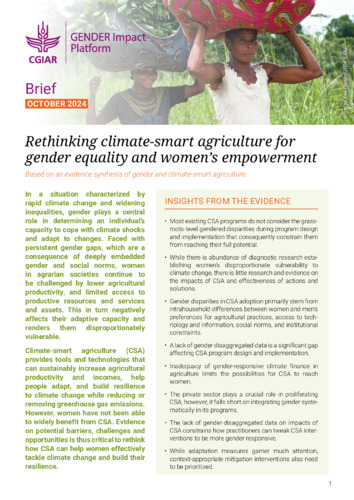Rethinking climate-smart agriculture for gender equality and women's empowerment
Abstract
In a situation characterized by rapid climate change and widening inequalities, gender plays a central role in determining an individual’s capacity to cope with climate shocks and adapt to changes. Faced with persistent gender gaps, which are a consequence of deeply embedded gender and social norms, women in agrarian societies continue to be challenged by lower agricultural productivity, and limited access to productive resources and services and assets. This in turn negatively affects their adaptive capacity and renders them disproportionately vulnerable.
Climate-smart agriculture (CSA) provides tools and technologies that can sustainably increase agricultural productivity and incomes, help people adapt, and build resilience to climate change while reducing or removing greenhouse gas emissions. However, women have not been able to widely benefit from CSA. Evidence on potential barriers, challenges and opportunities is thus critical to rethink how CSA can help women effectively tackle climate change and build their resilience.

